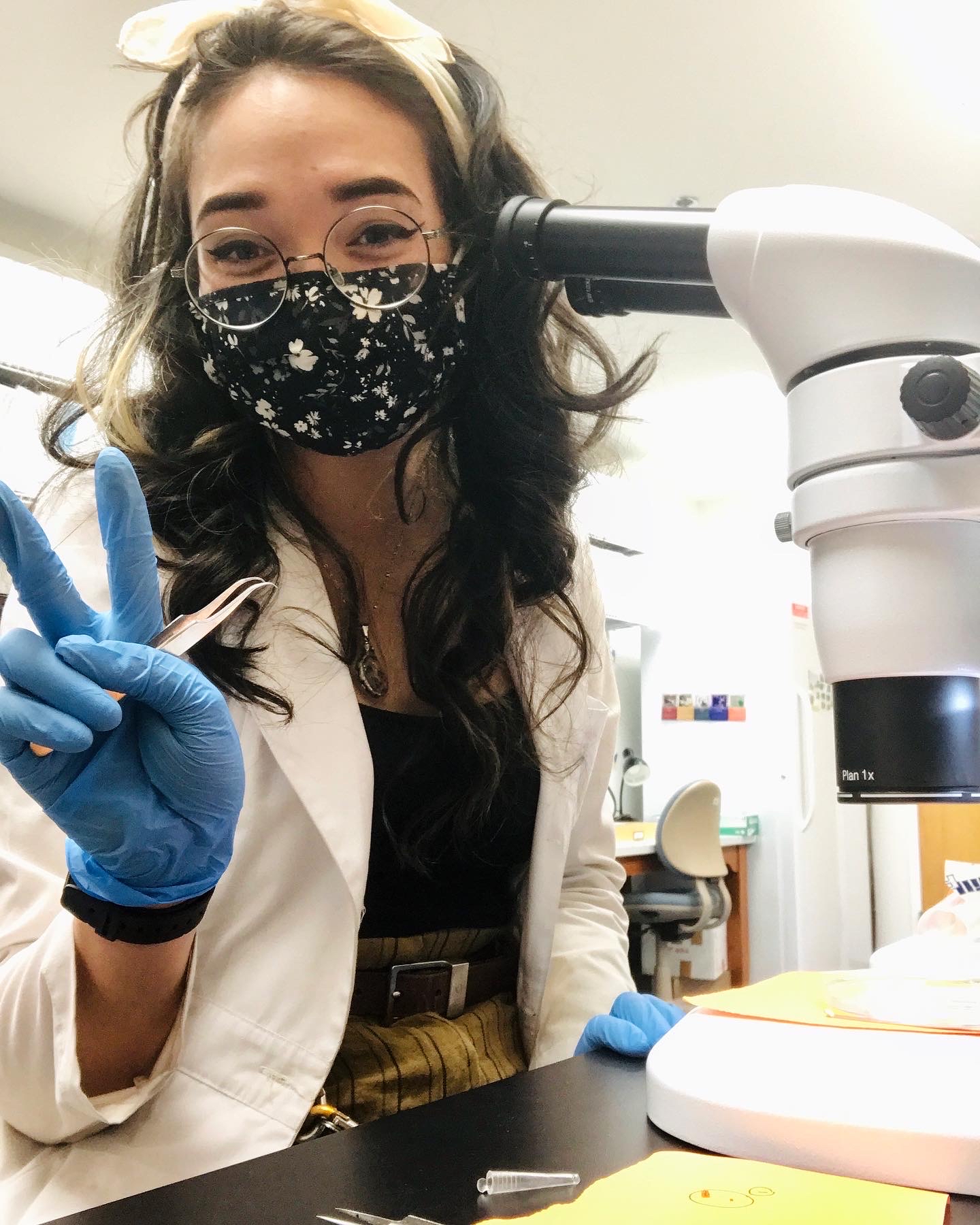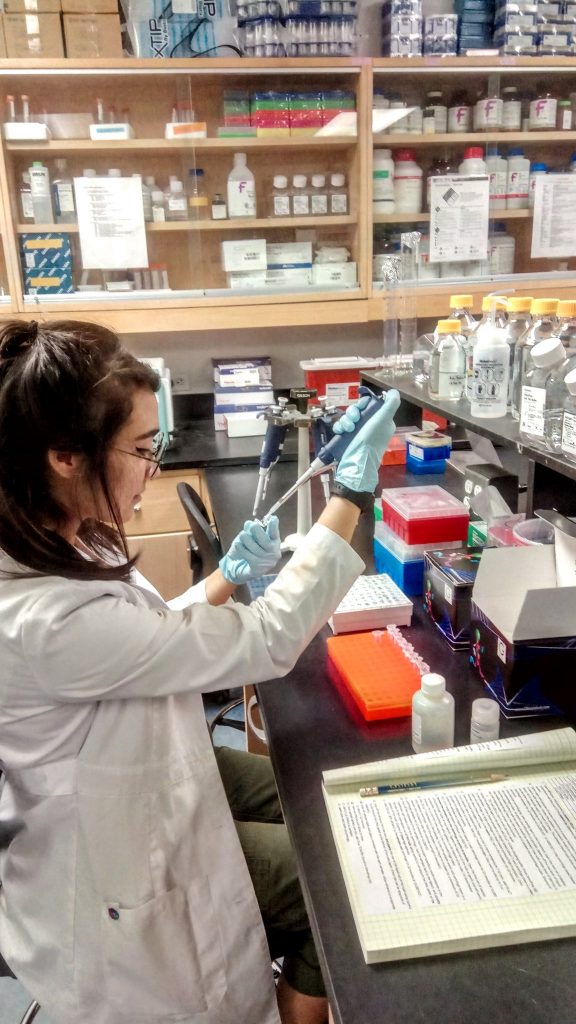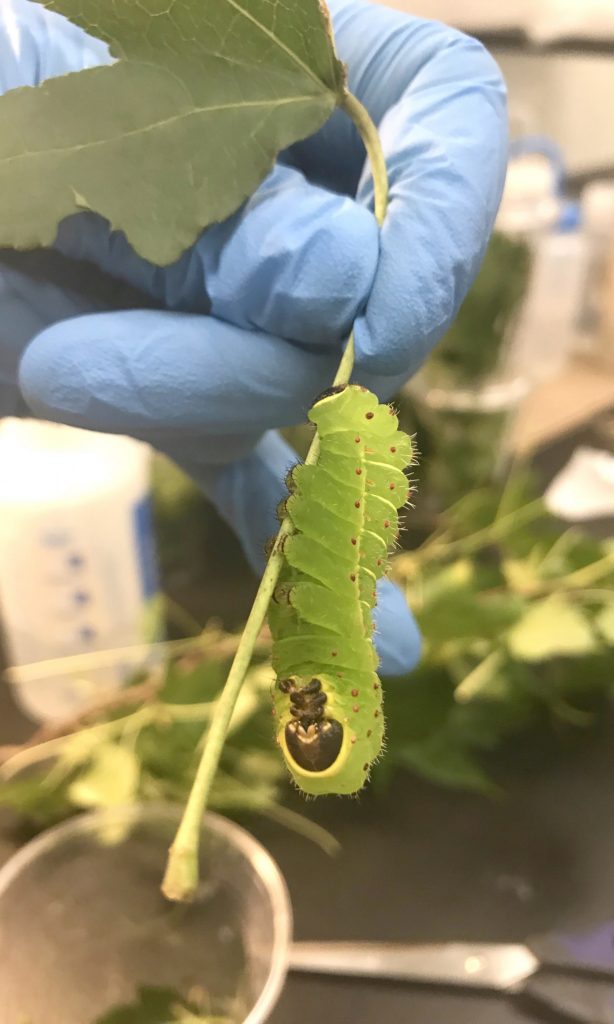 In Fall of 2021, Amanda Markee received a McGuire Center Graduate Assistantship to study variation in moth silk production for her Master’s research. In particular, Amanda studies silk production in the Luna moth (Actias luna, in the family Saturniidae), using genomic tools to describe the process by which DNA, present in all life stages, provides the coded instructions for caterpillars to develop the physical ability and behaviors to make silk.
In Fall of 2021, Amanda Markee received a McGuire Center Graduate Assistantship to study variation in moth silk production for her Master’s research. In particular, Amanda studies silk production in the Luna moth (Actias luna, in the family Saturniidae), using genomic tools to describe the process by which DNA, present in all life stages, provides the coded instructions for caterpillars to develop the physical ability and behaviors to make silk.
Silk is an amazing biomaterial and can only be produced by arthropods. While much is known about silk produced by the domesticated silkworm (Bombyx mori) because of its importance to the textile industry, very little is known about the silk produced by other moths and butterflies (Lepidoptera). Additionally, much of silk research focuses on the silk cocoon that moths use as protection when they pupate, despite the fact that caterpillars can make silk from very early stages of their lives. Amanda seeks to describe how silk production changes in the Luna Moth throughout development by using DNA sequencing.
To answer her questions, Amanda dissects the organs that produce silk, known as silk glands, out of the caterpillars at each larval stage, or instar. She began rearing her lab colony of Luna moths in March of 2021, and “flash froze” individual caterpillars from each instar in extremely cold (-196°C) liquid nitrogen for long-term storage. To remove the silk glands, Amanda must place the caterpillars under a microscope and carefully section out the silk glands using dissection scissors and forceps. Once the organs have been extracted, she can send them off to a commercial lab for sequencing to get a better understanding of how exactly Luna Moth DNA codes for the proteins responsible for various silk properties.
Amanda presented her research at the Entomological Society of America annual meeting in Denver, Colorado last fall and received the presidential prize for the Systematics and Evolutionary Biology graduate student competition, specializing in Genetics and Molecular Biology. She plans to graduate with her Master’s in Spring of 2023 majoring in Interdisciplinary Ecology through the School of Natural Resources and Environment.
Prior to her graduate studies, Amanda served as molecular lab manager for the Kawahara Lab where, along with preparing DNA extractions and analyses, she supervised lab use by staff, volunteers, and students, developed standard operating procedures and protocols, maintained equipment, supplies, budgets and records, and implemented hazardous waste and chemical hygiene plans.
In addition to her research and training students and volunteers, Amanda regularly participates in museum events and maintains an active outreach role as a member of the Florida Museum community. She frequently interacts with Alachua County K-12 students and teachers, giving age-appropriate tours of the molecular lab as well as visiting classrooms through initiatives sponsored by the Thompson Earth Systems Institute (TESI) where she teaches students and teachers about Lepidoptera biodiversity, life history strategies, and natural history.

